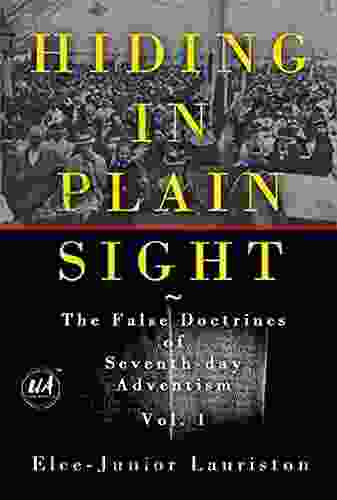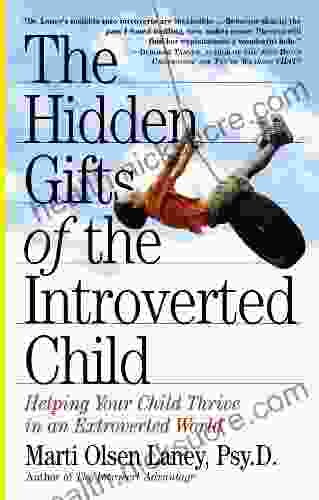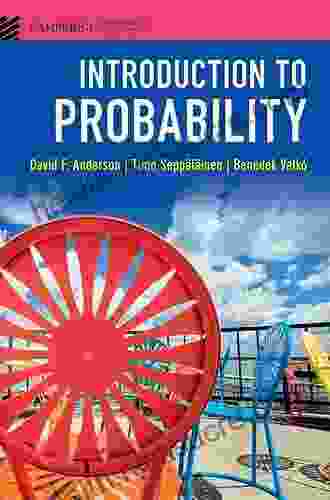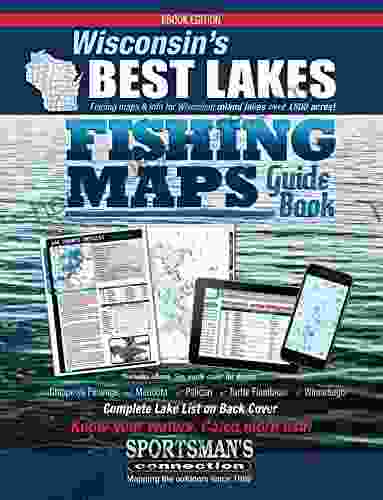Why We Justify Foolish Beliefs, Bad Decisions, and Hurtful Acts

4.5 out of 5
| Language | : | English |
| File size | : | 1546 KB |
| Text-to-Speech | : | Enabled |
| Screen Reader | : | Supported |
| Enhanced typesetting | : | Enabled |
| Word Wise | : | Enabled |
| Print length | : | 466 pages |
Cognitive Dissonance and the Need for Justification
We all strive to maintain a sense of consistency in our thoughts, feelings, and actions. When our beliefs, decisions, or actions conflict with each other, it creates a state of psychological discomfort known as cognitive dissonance. To reduce this discomfort, we often engage in justification, a process by which we attempt to rationalize or explain away the inconsistency.
Self-Justification and the Self-Serving Bias
Self-justification is a common form of justification in which we focus on the positive aspects of our beliefs, decisions, or actions while downplaying or ignoring the negative aspects. This bias can lead us to overestimate our own abilities, inflate our accomplishments, and excuse our mistakes.
For example, if we make a bad investment decision, we may convince ourselves that we conducted thorough research and that the market was unpredictable. This allows us to maintain a positive self-image and avoid the discomfort of admitting that we made a mistake.
Motivated Reasoning and Confirmation Bias
Motivated reasoning is another common justification strategy. When we have a strong emotional attachment to a particular belief or outcome, we tend to seek out information and arguments that support our position while ignoring or discrediting evidence that contradicts it.
Confirmation bias is a specific type of motivated reasoning that occurs when we selectively seek out information that confirms our existing beliefs and ignore or discount information that challenges them. For example, if we believe that climate change is a hoax, we may focus on articles and websites that support this view while ignoring scientific evidence that contradicts it.
The Dangers of Justification
While justification can provide temporary relief from cognitive dissonance, it can also have negative consequences in the long run. By justifying our foolish beliefs, bad decisions, and hurtful acts, we:
- Avoid taking responsibility for our actions: Justification allows us to shift blame or deny accountability, preventing us from learning from our mistakes and making better choices in the future.
- Become entrenched in our beliefs: By constantly seeking out information that supports our existing beliefs, we reinforce those beliefs and make it harder to change our minds, even when presented with compelling evidence.
- Damage our relationships: When we justify hurtful acts or refuse to acknowledge our mistakes, it can damage our relationships with others and make it difficult to build and maintain trust.
Overcoming Justification and Making Better Choices
To overcome justification and make more rational and compassionate choices, we need to:
- Recognize our biases: Be aware of our tendency to self-justify and to engage in motivated reasoning and confirmation bias.
- Seek out multiple perspectives: Make a conscious effort to expose ourselves to information and arguments that challenge our existing beliefs.
- Consider the long-term consequences: Think about the potential consequences of our actions before we justify them. Ask ourselves: "Will this justification help me grow and become a better person?"
- Be willing to change our minds: Accept that our beliefs and decisions are not always correct and be open to changing our minds when presented with new information.
- Practice empathy and compassion: Try to see things from the perspective of others and understand why they may hold different beliefs or make different choices.
We all justify our foolish beliefs, bad decisions, and hurtful acts from time to time. However, by understanding this process and recognizing our biases, we can overcome justification and make more rational and compassionate choices. By striving to maintain consistency between our thoughts, feelings, and actions, we can live more authentic and fulfilling lives.
4.5 out of 5
| Language | : | English |
| File size | : | 1546 KB |
| Text-to-Speech | : | Enabled |
| Screen Reader | : | Supported |
| Enhanced typesetting | : | Enabled |
| Word Wise | : | Enabled |
| Print length | : | 466 pages |
Do you want to contribute by writing guest posts on this blog?
Please contact us and send us a resume of previous articles that you have written.
 Fiction
Fiction Non Fiction
Non Fiction Romance
Romance Mystery
Mystery Thriller
Thriller SciFi
SciFi Fantasy
Fantasy Horror
Horror Biography
Biography Selfhelp
Selfhelp Business
Business History
History Classics
Classics Poetry
Poetry Childrens
Childrens Young Adult
Young Adult Educational
Educational Cooking
Cooking Travel
Travel Lifestyle
Lifestyle Spirituality
Spirituality Health
Health Fitness
Fitness Technology
Technology Science
Science Arts
Arts Crafts
Crafts DIY
DIY Gardening
Gardening Petcare
Petcare Allistair Mccaw
Allistair Mccaw Emily Parke Chase
Emily Parke Chase Dr Nadine Sinclair
Dr Nadine Sinclair Bruce Tremper
Bruce Tremper Amby Burfoot
Amby Burfoot Signe Pike
Signe Pike Justin J Exner
Justin J Exner Helen Macdonald
Helen Macdonald Rex L Forehand
Rex L Forehand Roy Shepard
Roy Shepard Alan Watts
Alan Watts Dr Fiona Mcpherson
Dr Fiona Mcpherson Richard H Thaler
Richard H Thaler Annie F Downs
Annie F Downs Eric Lemarque
Eric Lemarque Allen Carr
Allen Carr Don Harris
Don Harris Stephen E Flowers
Stephen E Flowers Joe Sparrow
Joe Sparrow Anil Seth
Anil Seth Alistair Cooke
Alistair Cooke Jdmission Senior Consultants
Jdmission Senior Consultants Eric Naguski
Eric Naguski Allison Tyson
Allison Tyson Pamela Douglas
Pamela Douglas Casi Mclean
Casi Mclean Gavin Fairbairn
Gavin Fairbairn Jack Smith
Jack Smith Alina A Von Davier
Alina A Von Davier Daniel Stewart
Daniel Stewart Emily Thiede
Emily Thiede Neely Spence Gracey
Neely Spence Gracey Jon S Bailey
Jon S Bailey Kenji Tokitsu
Kenji Tokitsu Debi Pearl
Debi Pearl John Shewey
John Shewey Mian Majid Ali Afzal
Mian Majid Ali Afzal Hilda Jarman Muir
Hilda Jarman Muir Allison Arevalo
Allison Arevalo Greg Moran
Greg Moran Jared Cohen
Jared Cohen Liz Clark
Liz Clark Dr Ron M Horner
Dr Ron M Horner Steve J Martin
Steve J Martin Lynn Stafford Yilmaz
Lynn Stafford Yilmaz Jennifer Louden
Jennifer Louden Chris Lear
Chris Lear James Fallows
James Fallows Richard M Van Gaasbeek
Richard M Van Gaasbeek Andrie De Vries
Andrie De Vries Valerie Gilpeer
Valerie Gilpeer Joseph Fort Newton
Joseph Fort Newton Andrew Kastor
Andrew Kastor Kim Liggett
Kim Liggett Alexander Clarke
Alexander Clarke Lionel Cruzille
Lionel Cruzille Paul D Brinkman
Paul D Brinkman C Calvin Jones
C Calvin Jones Douglas Whynott
Douglas Whynott Ken Cohen
Ken Cohen Frank Delaney
Frank Delaney Bryan Goodwin
Bryan Goodwin Harald B Teicher
Harald B Teicher Chris Mulder
Chris Mulder Robin Riley
Robin Riley Christopher Bruhn
Christopher Bruhn Susan Kuklin
Susan Kuklin Jeffrey E Young
Jeffrey E Young Jay Blahnik
Jay Blahnik Carolyn Shearlock
Carolyn Shearlock Somaiya Daud
Somaiya Daud Maria Hannay
Maria Hannay Carrot Quinn
Carrot Quinn Peggy L Chinn
Peggy L Chinn Jeff Brent
Jeff Brent Greg Strandberg
Greg Strandberg Travis Jeffery
Travis Jeffery Joel Thomas Chopp
Joel Thomas Chopp Suzanne Nottingham
Suzanne Nottingham Philip Gosse
Philip Gosse J R R Tolkien
J R R Tolkien Judith Rich Harris
Judith Rich Harris Lsatmax Lsat Prep
Lsatmax Lsat Prep Marlin M Mackenzie
Marlin M Mackenzie Daniel J Levitin
Daniel J Levitin Joe Kelly
Joe Kelly J Richard Gott
J Richard Gott Alison Palmer
Alison Palmer Judy Converse
Judy Converse Kate Mcmahon
Kate Mcmahon Aliza Kelly
Aliza Kelly Jeff Burlingame
Jeff Burlingame Winston Churchill
Winston Churchill Wendelin Van Draanen
Wendelin Van Draanen Mike Zimmerman
Mike Zimmerman Chris Lundgren
Chris Lundgren Kate Wood
Kate Wood Emma Shelford
Emma Shelford Nevin Martell
Nevin Martell Aubrey Gordon
Aubrey Gordon Frederick Courteney Selous
Frederick Courteney Selous Sean Patrick
Sean Patrick Sharon Weinberger
Sharon Weinberger Ian Westermann
Ian Westermann Novak Djokovic
Novak Djokovic Dennis Overbye
Dennis Overbye Tami Overhauser
Tami Overhauser Allen Everett
Allen Everett Michael Reist
Michael Reist Simone Milasas
Simone Milasas Jim Cobb
Jim Cobb P J Richards
P J Richards Sarah Grison
Sarah Grison Christian Asonye
Christian Asonye Pasco Valana
Pasco Valana Brian Boone
Brian Boone Kaitlyn Hill
Kaitlyn Hill Mourad Boufadene
Mourad Boufadene Victor Canning
Victor Canning Eli Saslow
Eli Saslow Ben Greenfield
Ben Greenfield James Ferguson
James Ferguson Edmund G R Kraal
Edmund G R Kraal William B Helmreich
William B Helmreich Peter Mark Adams
Peter Mark Adams Sam Jefferson
Sam Jefferson Cy Tymony
Cy Tymony Mark Beauregard
Mark Beauregard Allan G Bluman
Allan G Bluman Myrna Blyth
Myrna Blyth Tom Kelly
Tom Kelly Linda Barrett Osborne
Linda Barrett Osborne Monique Joiner Siedlak
Monique Joiner Siedlak Rodney Ford
Rodney Ford Iain Gately
Iain Gately Edmund Richardson
Edmund Richardson Karen Blumenthal
Karen Blumenthal Alicia F Lieberman
Alicia F Lieberman Teri Moser Woo
Teri Moser Woo Amy Saltzman
Amy Saltzman Josephine Perry
Josephine Perry James Kipling
James Kipling Shawn D Madden
Shawn D Madden Mike Wallace
Mike Wallace Matthew Mccoy
Matthew Mccoy Meritxell Castells
Meritxell Castells Randy Russell
Randy Russell Anna Costaras
Anna Costaras Carl Paoli
Carl Paoli Liz Evers
Liz Evers Allison Norfolk
Allison Norfolk John Lloyd
John Lloyd Elliot Aronson
Elliot Aronson Matthew Syed
Matthew Syed Mary Bergin
Mary Bergin Allison Alexy
Allison Alexy Julie Currin
Julie Currin Patrick Stewart
Patrick Stewart Catherine Gildiner
Catherine Gildiner C S Wilde
C S Wilde Priya Ardis
Priya Ardis Kathleen Bachynski
Kathleen Bachynski Perry Lefko
Perry Lefko Dan Miller
Dan Miller Jennifer Waldburger
Jennifer Waldburger Allen R Angel
Allen R Angel The School Of Life
The School Of Life Rebecca St James
Rebecca St James Beth Cavenaugh
Beth Cavenaugh Konnie Wong
Konnie Wong Julie Schwietert
Julie Schwietert Michael Shermer
Michael Shermer Rene Almeling
Rene Almeling Allen Dulles
Allen Dulles Bright Summaries
Bright Summaries Amy Wenzel
Amy Wenzel Courtney Summers
Courtney Summers Dr Danielle Ward
Dr Danielle Ward Karen Murphy
Karen Murphy Gail Steketee
Gail Steketee Mark Kistler
Mark Kistler Steven J Burton
Steven J Burton Stephen R Covey
Stephen R Covey W Edwards Deming
W Edwards Deming Milton Gussow
Milton Gussow Claude Levi Strauss
Claude Levi Strauss Diana Korte
Diana Korte Brett Lee Scott
Brett Lee Scott Allen O Bannon
Allen O Bannon Jeremy Evans
Jeremy Evans Paul Schullery
Paul Schullery Douglas Nicholas
Douglas Nicholas Giuseppe Mascoli
Giuseppe Mascoli Ryan Spaeder
Ryan Spaeder Dan Millman
Dan Millman Don Miguel Ruiz
Don Miguel Ruiz Allan Trevor
Allan Trevor Milt Rosko
Milt Rosko Susan Neiman
Susan Neiman Linda Martella Whitsett
Linda Martella Whitsett Sid Roth
Sid Roth Jason Padgett
Jason Padgett Robin Stevenson
Robin Stevenson Linda A Curtis
Linda A Curtis Sheena Byrom
Sheena Byrom Walter Isaacson
Walter Isaacson Judith Mckay
Judith Mckay Daniel J Siegel
Daniel J Siegel Rowena Murray
Rowena Murray Lydia Sherrer
Lydia Sherrer Allan House
Allan House Allan Phillips
Allan Phillips Kwame Onwuachi
Kwame Onwuachi Kelsey Banfield
Kelsey Banfield Grant S Lipman
Grant S Lipman Julie Morgenstern
Julie Morgenstern Laura Randall
Laura Randall Jorge Muniz
Jorge Muniz Brenda Boyd
Brenda Boyd Eugen Herrigel
Eugen Herrigel Rick Johnson
Rick Johnson Jacqueline H Wolf
Jacqueline H Wolf Mark F Sohn
Mark F Sohn S Allen Counter
S Allen Counter Mary Elizabeth O Brien
Mary Elizabeth O Brien Shobi Nolan
Shobi Nolan Pure Calisthenics
Pure Calisthenics Jim Downs
Jim Downs Sabatino Moscati
Sabatino Moscati Ed Robinson
Ed Robinson Joe Kenn
Joe Kenn Dennis Georgatos
Dennis Georgatos Neil Hayes
Neil Hayes David Hancock
David Hancock Michelle Nijhuis
Michelle Nijhuis Alivia Stephens
Alivia Stephens Cate Stillman
Cate Stillman Mark Dice
Mark Dice Janet E Wall
Janet E Wall Tom Babin
Tom Babin Alison Lighthall Miller
Alison Lighthall Miller Alister E Mcgrath
Alister E Mcgrath Clive Cussler
Clive Cussler Mandi Hickman
Mandi Hickman Segun Adebajo
Segun Adebajo Joosr
Joosr Naomi Kokoricha
Naomi Kokoricha Roger Bannister
Roger Bannister The Dark Lords
The Dark Lords Jim Mancuso
Jim Mancuso Michele Stanten
Michele Stanten Grant Petersen
Grant Petersen Linda S Jones
Linda S Jones Nick Riley
Nick Riley Tress Bowen
Tress Bowen Holly Homer
Holly Homer David M Killoran
David M Killoran Edwin Amenta
Edwin Amenta Daniel Mendelsohn
Daniel Mendelsohn Joe Vasicek
Joe Vasicek Noor Ain
Noor Ain David F Anderson
David F Anderson Geoff Salmon
Geoff Salmon Karen Bonnell
Karen Bonnell Jonathan St B T Evans
Jonathan St B T Evans Carla Simpson
Carla Simpson Lisa Marshall
Lisa Marshall Bill Varney Jr
Bill Varney Jr Stuart A Kauffman
Stuart A Kauffman Trae Dorn
Trae Dorn Alicia Jasinska
Alicia Jasinska Thomas R Verny
Thomas R Verny Tim Baker
Tim Baker James F Mckenzie
James F Mckenzie John Bul Dau
John Bul Dau John C Lennox
John C Lennox Kevin West
Kevin West Jenara Nerenberg
Jenara Nerenberg Robbin Gregory
Robbin Gregory W E Fairbairn
W E Fairbairn Allen Stroud
Allen Stroud Eddie Guerrero
Eddie Guerrero Elce Junior Lauriston
Elce Junior Lauriston Eric Newby
Eric Newby Mary Quinlan Mcgrath
Mary Quinlan Mcgrath Rex Allen Jones Ii
Rex Allen Jones Ii Joanna Foley Rd
Joanna Foley Rd Scott Smith
Scott Smith Chip Coffey
Chip Coffey Alison Pearlman
Alison Pearlman Grace E Stewart
Grace E Stewart Jim Bell
Jim Bell Gary Leland
Gary Leland Lexie Scott
Lexie Scott Jimena Canales
Jimena Canales Robert Kiltz
Robert Kiltz Kara Lawrence
Kara Lawrence Marie Osmond
Marie Osmond Debra L Martin
Debra L Martin Tami Asars
Tami Asars Vivian Gornick
Vivian Gornick Paul Green
Paul Green Rob Shelsky
Rob Shelsky Bobby Clampett
Bobby Clampett John Bargh Ph D
John Bargh Ph D Roy Clark
Roy Clark Marianne Williamson
Marianne Williamson Randy Olson
Randy Olson Tim Hodkinson
Tim Hodkinson Sportsman S Connection
Sportsman S Connection Frank Christianson
Frank Christianson Maria Rickert Hong
Maria Rickert Hong Alistair Brownlee
Alistair Brownlee Bill Hendricks
Bill Hendricks Charles Conn
Charles Conn L H Nicole
L H Nicole Ryan Hall
Ryan Hall Charles J Robinson
Charles J Robinson Eickhel Mendoza
Eickhel Mendoza Lynn Rush
Lynn Rush William A Haviland
William A Haviland Bill Horn
Bill Horn Lisa M Rose
Lisa M Rose Robert Penn Warren
Robert Penn Warren William W Dressler
William W Dressler Gary Sizer
Gary Sizer Allison Mcdonald Ace
Allison Mcdonald Ace Chris Chambers
Chris Chambers Meredith L Jacobs
Meredith L Jacobs Marc Bubbs
Marc Bubbs Jim Cheney
Jim Cheney Kim Heacox
Kim Heacox Rachel Caine
Rachel Caine Jonathan Moeller
Jonathan Moeller Chris Fox
Chris Fox Maurice Isserman
Maurice Isserman John Hughes
John Hughes Brenda Gable
Brenda Gable John Novosel Jr
John Novosel Jr Joseph Harkreader
Joseph Harkreader Tiger Woods
Tiger Woods Lynn Acton
Lynn Acton Nick Karas
Nick Karas Alexandra Amor
Alexandra Amor Sylvia Larsen
Sylvia Larsen P Schreiber
P Schreiber Jean Jacques Chevron
Jean Jacques Chevron Annabeth Headrick
Annabeth Headrick Jen Torborg
Jen Torborg Robert S Witte
Robert S Witte Erica Abbett
Erica Abbett Etienne Noumen
Etienne Noumen Andrew Benfield
Andrew Benfield Peter Van Der Linden
Peter Van Der Linden Petr Zima
Petr Zima Karen Wambach
Karen Wambach Gerd Gigerenzer
Gerd Gigerenzer D C Fergerson
D C Fergerson Todd Wilbur
Todd Wilbur Pass Your Class
Pass Your Class George Buehler
George Buehler Ronald E Mickens
Ronald E Mickens Susan Ware
Susan Ware Carlo Ancelotti
Carlo Ancelotti Godfrey Higgins
Godfrey Higgins Tom Daley
Tom Daley Brian Lopes
Brian Lopes Saint Teresa Of Avila
Saint Teresa Of Avila Kevin Leman
Kevin Leman Toru Toba
Toru Toba Scott Graham
Scott Graham Kaylee Cole
Kaylee Cole Robert M Sapolsky
Robert M Sapolsky Stuart Holmes Coleman
Stuart Holmes Coleman Tim Roughgarden
Tim Roughgarden Ronald Hutton
Ronald Hutton John Michael Kelly
John Michael Kelly Lewis Carroll
Lewis Carroll Robert Taylor
Robert Taylor Michaelbrent Collings
Michaelbrent Collings Michael Fullan
Michael Fullan David Eagleman
David Eagleman Natasha Devon
Natasha Devon Cinda Williams Chima
Cinda Williams Chima Raymond Turner
Raymond Turner Allen N Mendler
Allen N Mendler Tom Watson
Tom Watson Alison Aulakh
Alison Aulakh Pottermore Publishing
Pottermore Publishing Felix Marks
Felix Marks Ashley D Kendall
Ashley D Kendall Glenn Tinnin
Glenn Tinnin Norrinda Brown Hayat
Norrinda Brown Hayat Frederick Mosteller
Frederick Mosteller Deborah Ann Davis
Deborah Ann Davis Selene Yeager
Selene Yeager Stephen Haddelsey
Stephen Haddelsey Olajumoke Adenowo
Olajumoke Adenowo Theodore B Sauselein
Theodore B Sauselein Suzanne Alderson
Suzanne Alderson N B Hankes
N B Hankes Joel S Owen
Joel S Owen Katy Milkman
Katy Milkman Linda Greenlaw
Linda Greenlaw Jeff Hawkins
Jeff Hawkins Anna Leinberger
Anna Leinberger Dave Pelz
Dave Pelz Rhonda Huettenmueller
Rhonda Huettenmueller Despina Meris
Despina Meris Richard Kaczynski
Richard Kaczynski Suzanne O Sullivan
Suzanne O Sullivan Phil Hornshaw
Phil Hornshaw Marc Vachon
Marc Vachon James Sieckmann
James Sieckmann Gregory Cochran
Gregory Cochran George M Johnson
George M Johnson Carla Mooney
Carla Mooney Nikki Solano
Nikki Solano Deborah Macnamara Phd
Deborah Macnamara Phd Allen J Christenson
Allen J Christenson Allison Williams
Allison Williams Maria Thompson Daviess
Maria Thompson Daviess Jason Durham
Jason Durham Alisha J Brown
Alisha J Brown Jim C Hines
Jim C Hines Ron Merly
Ron Merly Danica G Hays
Danica G Hays Alison Scott Wright
Alison Scott Wright Arthur Aughey
Arthur Aughey Matt Hart
Matt Hart Allen G Taylor
Allen G Taylor Laerke Recht
Laerke Recht The Editors Of Outside Magazine
The Editors Of Outside Magazine Bret Hart
Bret Hart Charlotte Runcie
Charlotte Runcie Paul J Kosmin
Paul J Kosmin Jonathan E Steinhart
Jonathan E Steinhart 10th Edition Kindle Edition
10th Edition Kindle Edition Grace Lindsay
Grace Lindsay Aly Raisman
Aly Raisman Ethem Mining
Ethem Mining Paul S Auerbach
Paul S Auerbach Dennis Jarecke
Dennis Jarecke Christina Hoff Sommers
Christina Hoff Sommers Kristine Hudson
Kristine Hudson Franz Kellermann
Franz Kellermann Chris Cannon
Chris Cannon Bogdan Ivanov
Bogdan Ivanov Alison Gervais
Alison Gervais Robert Green
Robert Green Marti Olsen Laney
Marti Olsen Laney Roy Macskimming
Roy Macskimming Ann C Logue
Ann C Logue Allison Dolan
Allison Dolan Kate Clifford Larson
Kate Clifford Larson Allen Morris Jones
Allen Morris Jones Muthukumaran Mani
Muthukumaran Mani Allen M Hornblum
Allen M Hornblum Tim Rappleye
Tim Rappleye John Macinnes
John Macinnes Alicia Thomas Woolf
Alicia Thomas Woolf Alistair Higham
Alistair Higham Molly Forbes
Molly Forbes Allan Kardec
Allan Kardec Vitalis I Valentine
Vitalis I Valentine Mara Krechevsky
Mara Krechevsky William Stott
William Stott Raychelle Cassada Lohmann
Raychelle Cassada Lohmann Arianna Brooks
Arianna Brooks Matthieu Auzanneau
Matthieu Auzanneau Jeff Gordon
Jeff Gordon Apryl Baker
Apryl Baker Barbara De Angelis
Barbara De Angelis Peter Hollins
Peter Hollins Jennifer E Smith
Jennifer E Smith Itzik Ben Gan
Itzik Ben Gan Y R Davis
Y R Davis Carlos Castaneda
Carlos Castaneda Brian Treanor
Brian Treanor Greg Henry
Greg Henry James Patterson
James Patterson Giancarlo Lemmi
Giancarlo Lemmi Henry Cloud
Henry Cloud Allan Hall
Allan Hall Vincent Schilling
Vincent Schilling Dan Abrahams
Dan Abrahams Joshua Elliot James
Joshua Elliot James David Hurst Thomas
David Hurst Thomas John Kavanagh
John Kavanagh Fluent In Korean
Fluent In Korean Leonard Shlain
Leonard Shlain Jim Rahtz
Jim Rahtz Meredith Russo
Meredith Russo Lennard Bickel
Lennard Bickel Leah Vanderveldt
Leah Vanderveldt Sarah P Morris
Sarah P Morris Kenneth Igiri
Kenneth Igiri Kota Nozomi
Kota Nozomi Allison Schrager
Allison Schrager Kimberly Brown
Kimberly Brown
Light bulbAdvertise smarter! Our strategic ad space ensures maximum exposure. Reserve your spot today!

 Shannon SimmonsUnveiling the Secrets of Hiding in Plain Sight: A Comprehensive Exploration
Shannon SimmonsUnveiling the Secrets of Hiding in Plain Sight: A Comprehensive Exploration
 Dylan HayesUnveiling the Hidden Gifts of the Introverted Child: A Comprehensive Guide to...
Dylan HayesUnveiling the Hidden Gifts of the Introverted Child: A Comprehensive Guide to... Harvey BellFollow ·11.8k
Harvey BellFollow ·11.8k Branden SimmonsFollow ·3.8k
Branden SimmonsFollow ·3.8k Cruz SimmonsFollow ·7.4k
Cruz SimmonsFollow ·7.4k W.B. YeatsFollow ·15.8k
W.B. YeatsFollow ·15.8k Edward BellFollow ·11.9k
Edward BellFollow ·11.9k Jeremy MitchellFollow ·2.2k
Jeremy MitchellFollow ·2.2k Chad PriceFollow ·4.4k
Chad PriceFollow ·4.4k Lord ByronFollow ·15.4k
Lord ByronFollow ·15.4k

 Dominic Simmons
Dominic SimmonsFierce Attachments: A Memoir by Vivian Gornick - A...
Vivian Gornick's Fierce Attachments is a...

 Edison Mitchell
Edison MitchellPrimer for America's Favorite Wilderness: A Comprehensive...
In the vast...

 Jan Mitchell
Jan MitchellIntroduction to Probability: A Comprehensive Guide for...
Probability is a crucial branch of...

 Chuck Mitchell
Chuck Mitchell100,000 Mile Journey Into the Heart of America
In 2016, I embarked on a...

 Eddie Bell
Eddie BellHow Schools Around the World Are Inspiring Greatness One...
Education is the key...

 Quentin Powell
Quentin PowellJourney into the Heart of Alaska: Exploring the Majestic...
Alaska, the largest...
4.5 out of 5
| Language | : | English |
| File size | : | 1546 KB |
| Text-to-Speech | : | Enabled |
| Screen Reader | : | Supported |
| Enhanced typesetting | : | Enabled |
| Word Wise | : | Enabled |
| Print length | : | 466 pages |








